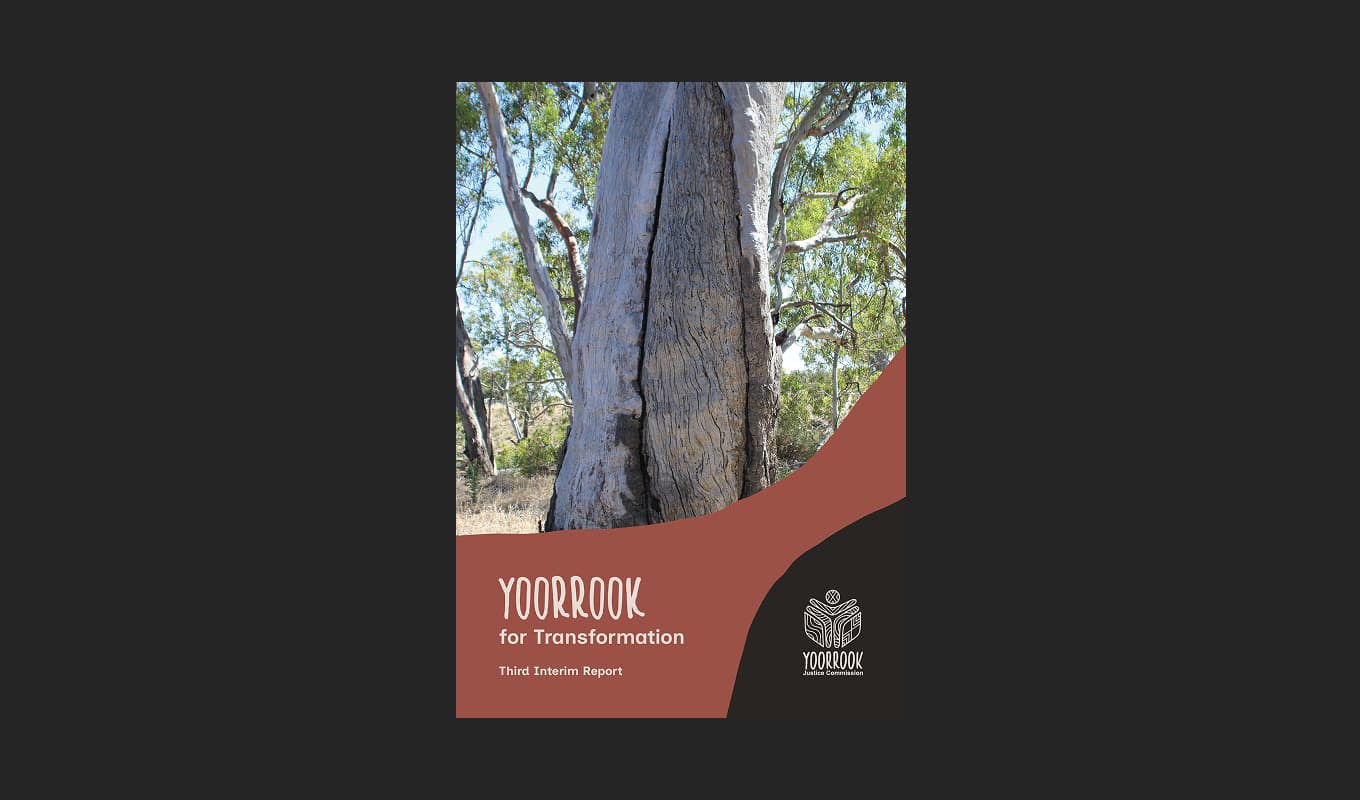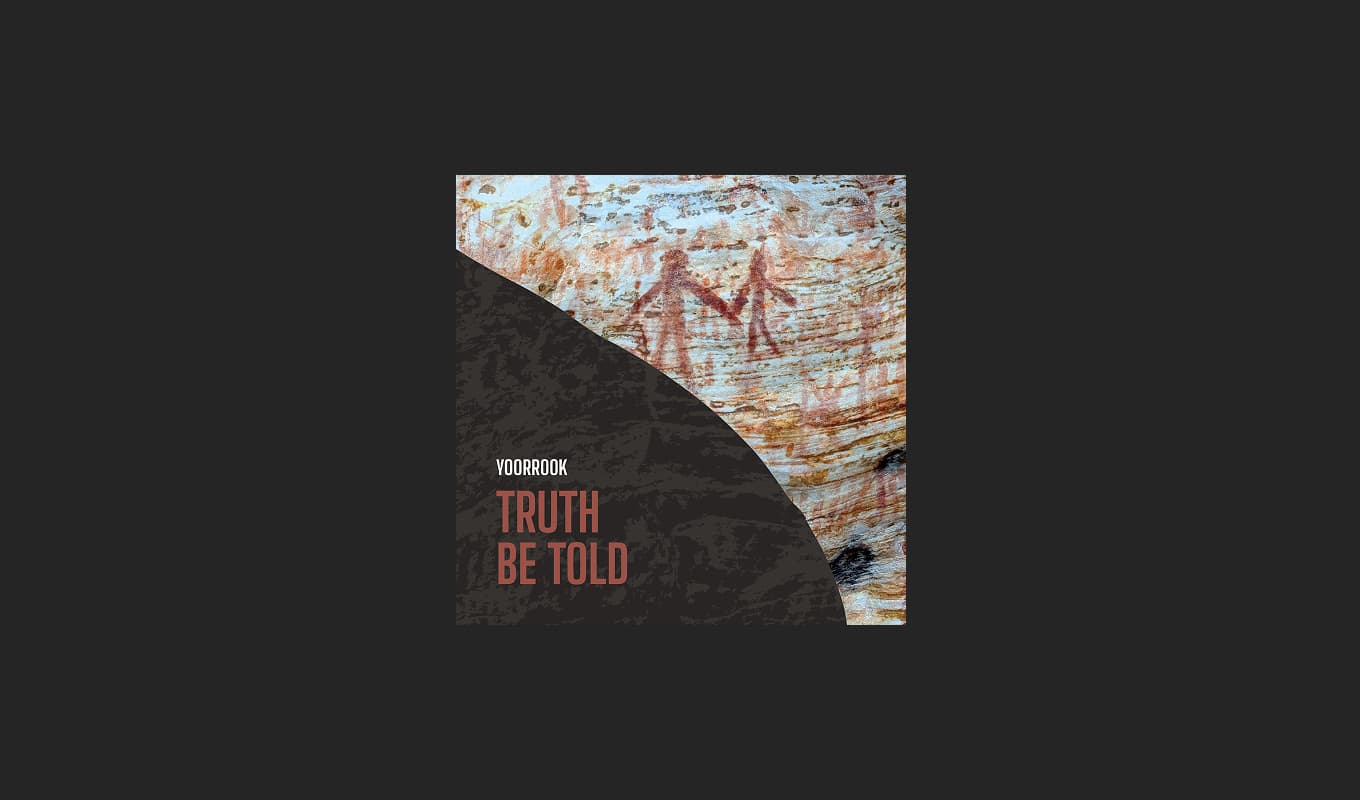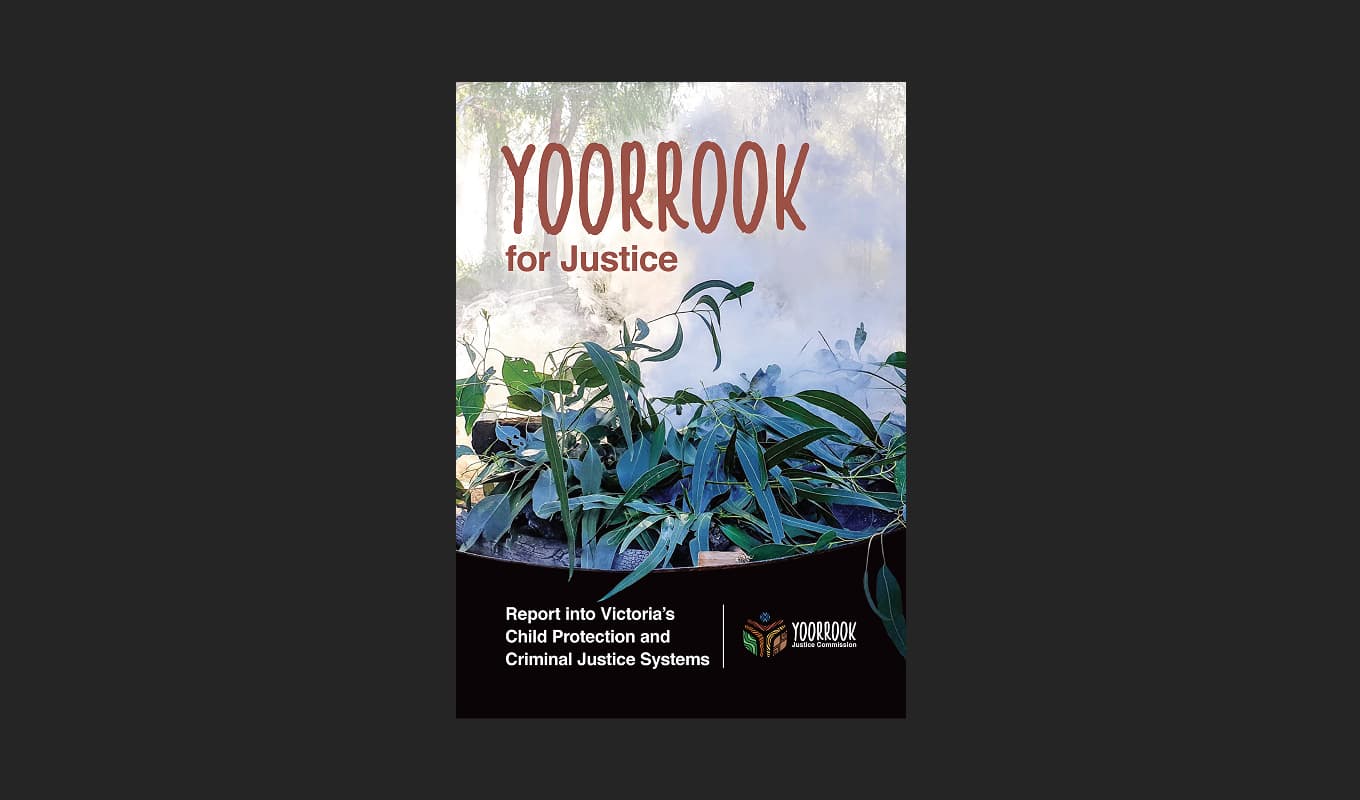Annie Kennedy
Annie Kennedy discusses the impacts of colonisation on First Peoples, including how land that had been managed for tens of thousands of years was taken by force in frontier wars and how First Nations children were taken from their families. They outline how they would like to see a Treaty enacted in Victoria and advocate for better education, communication, and sharing to contribute to the process of truth-telling.
Submission Transcription
To begin with initially James Cook was not instructed to take these lands called Australia but to engage with the inhabitants. In Victoria, John Batman made a sham treaty agreement with leaders of the Kulin Nation. It is believed that while he thought he was trading some things like tools etc for the land, the First People who have a different understanding about land would not have agreed to give their land away for a few supplies, and would have more likely understood it to be a form or temporary permission to be there as was the custom. In any case although this document acknowledged the indigenous people as the owners of the land the so called “treaty” was deemed illegal by the government who considered the land belonged to the crown (under the misconception of terra nullius) and any agreements should be with the government.
Land that had been managed for tens of thousands of years was taken by force in frontier wars (which included murders and massacres). People were moved off their land into reserves . Their lives fell under the control of the government via the “Protector of Aborigines’
Many First Nations children were taken from their families ( stolen generation) and placed into institutions or adopted into white families under government policies designed to assimilate (dilute/disrupt/destroy) aboriginal cultural connections and language in the name of protection, progress in an underlying attitude of white superiority . Often these children were told their parents had abandoned them. Many suffered physical and sexual abuse . They were sent to work as domestics and in trades but wages were withheld. It wasn’t till after the1967 referendum that first peoples were counted as citizens with rights. This was long campaigned for . Yorta Yorta man William Cooper was a strong leader in this campaign. . The violent dispossession and the breaking up of families resulted in the loss of home, livelihood, connection to country and culture for many. Intergenerational trauma has resulted . There is ongoing intergenerational poverty. There is a “great silence ” in this country in terms of its true origin and the right to justice and reparation for First People Post ‘the apology ” Closing the gap is going backwards in some areas. The incidents of imprisonment and child removal is still more frequent proportionally than the non indigenous population and life expectancy is lower..
Deaths in custody occur with little or no responsibility taken by the state. The age that children can be arrested is too low still. Dealing with racist policies and attitudes and disrespect takes a toll. Despite this treatment First Peoples here Victoria have worked together and individually to promote justice and better outcomes for their people. Without treaty we are perpetuating these injustices.
I learnt very little at primary school which I attended in the 1960’s. Then at high school little more. First peoples were more ore less portrayed as tribal groups living on the land in bark dwellings hunting and gathering. Nothing was said of the massacres/frontier wars .
There should be an effective respectful, process to enact a treaty with First Peoples in this state. There are already representative bodies so now it’s time for Victoria to step up to the plate and do the work with First Peoples to create something fit for purpose now and ongoing. Although the Voice tragically failed to be enshrined in the constitution, I think that if the misinformation at the time of the vote had not been rallied against the concept, many more Australians would have voted Yes for a very sensible change. Having seen many policies fail to close the gap, it is essential that government listen to what First Peoples have to say about the policies that affect them. It makes perfect sense to do so. We need an effective framework for Voice within the state.
Call it what you like but First Peoples know what the best way to go about things for them. Consultation should be a the first step. Acknowledgement of country should be encouraged and correct protocols for Welcome to Country followed. Promote the use of indigenous place names . Have memorials at the massacre site in Victoria. The age of criminal liability needs to be raised to 14 years. (The evidence is that children that need help and support do not improve with jail time. In fact they are more often brutalised and pushed into further criminal behaviour pushed into further criminal behaviour Have we learnt nothing from the “intervention” which sought to criminalise and micromanage/disempower and punish rather than follow r the ” Little Children are Sacred ” report recommendations to provide the supports needed to provide stronger, healthier communities in which children could thrive. If the agencies want to assist these children to be better citizens, the causes of their behaviour need to be addressed.
That means dealing with intergenerational trauma, poverty and disengagement. These kids need help and healing not punishment. Consultation with First Peoples around the ways to do this effectively is paramount. I would definitely like to see an education program that portrayed a true history of this country. I think education in schools is key.
I think we take our lead from First Nations Victorians. Get in touch with the First peoples Assembly of Victoria and take cues form them. We need to educate ourselves about the facts but also around effective communication to seek to engage and share . Share in person and through social media.. At the moment as negotiations are imminent its important for us allies to spread the word amongst our own communities and speak to them about the benefits and our responsibility for reparation and justice and about the truth how our country benefited from taking the land and resources from the people, creating disempowering policies and so causing ongoing poverty and trauma.
I think we take our lead from First Nations Victorians. Get in touch with the First peoples Assembly of Victoria and take cues form them. We need to educate ourselves about the facts but also around effective communication to seek to engage and share . Share in person and through social media.. At the moment as negotiations are imminent its important for us allies to spread the word amongst our own communities and speak to them about the benefits and our responsibility for reparation and justice and about the truth how our country benefited from taking the land and resources from the people, creating disempowering policies and so causing ongoing poverty and trauma.
Truth-teller consent
Contact us about this submission
Contact us if you’d like to discuss this submission.
Similar submissions
Explore submissions from other witnesses that discuss similar topics.
Mary Hassall
This submission is from Mary Hassall, a descendant of James Hassall, after whom the Hassall creek on Gunditj Country is named. It discusses her resear... more
Viki Sinclair (Fowler)
Viki Sinclair is a direct descendant of one of the original settlers of Gippsland, Colin McLaren. In this submission, she tells her personal story of... more
The Thomson Family Descendants
Some of the Thomson family descendants make this submission in hope that, it assists to establish the truth of impact on First Nations by early settle... more
Gayle Carr
Gayle Carr makes this submission on behalf of herself, Kathryn Williamson and the late Diana Halmarick. It outlines the range of historic reference ma... more
Reports and Recommendations
Read the official reports and recommendations of the Yoorrook Justice Commission.

Yoorrook for Transformation
Third Interim Report: A five-volume comprehensive reform report presenting evidence and findings on systemic injustices, and specific recommendations for meaningful change to transform the future.

Truth Be Told
An official public record that documents First Peoples experiences since colonisation, preserves crucial testimonies for future generations and creates an enduring resource for education and understanding.

Recommendations for change
Yoorrook Justice Commission’s recommendations for truth-telling, justice, and systemic reform in Victoria.
